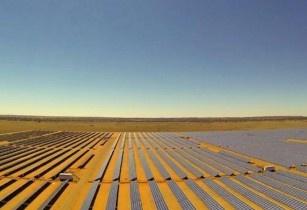Page 2 of 2South African prowess
Keeping Morocco company in the solar power stakes, Rwanda opened a facility in 2014 and Ghana and Uganda are planning their own solar farms. It is South Africa, however, where the continent’s largest and most advanced solar projects have made the nation one of the top 10 solar power producers in the world. In October 2014, leading solar power player, SolarReserve, flicked the switch on its 96-MW photovoltaic (PV) Jasper solar power project at Postmasburg in the Northern Cape, Africa’s largest solar installation. The plant’s more than 325,000 PV modules deliver 180,000MW-hours of renewable electricity annually for South African residents, enough to power 80,000 households, which is delivered through a 20-year power purchase agreement with Eskom.
Talking with African Review, CEO of SolarReserve, Kevin Smith said that ‘Africa’s excellent solar resource can be a strong part of the continent’s energy diversification plan’ to help meet growing energy needs, adding it will ‘reduce reliance on finite sources of power generation that produce carbon emissions and it will provide a very cost-effective solution to energy supply’.
Smith said, “South Africa’s IPP Procurement Programme is a world-class programme that continues to prove to be a global standard for renewable energy procurement. Through this well-structured and thorough programme, the continually declining cost of renewable energy is at parity with the cost of new built traditional generation. Renewable energy today can actively contribute to a country’s generation mix, replacing aging fleets as well as supporting a growing demand for generation capacity stimulated through economic growth.” He added that in addition to helping South Africa (and Africa) meet its critical electricity needs with clean and affordable solar power, the projects bring long-lasting economic benefits. “All our projects ensure robust local participation and technology transfer and are structured to exceed the minimum requirements for Black Economic Empowerment (BEE) equality on job creation, local content, ownership, management, procurement and enterprise development. A great deal of resources is applied to training local workers who can then take those skills and apply them to other industries or projects in the region. And all the projects set aside a percentage of total project revenues for enterprise development and socio-economic development for the benefit of local communities.”





















